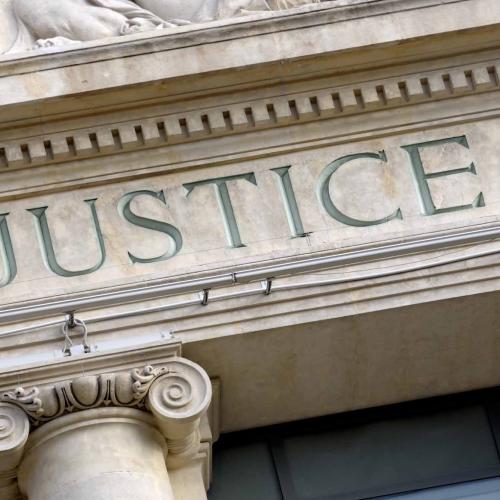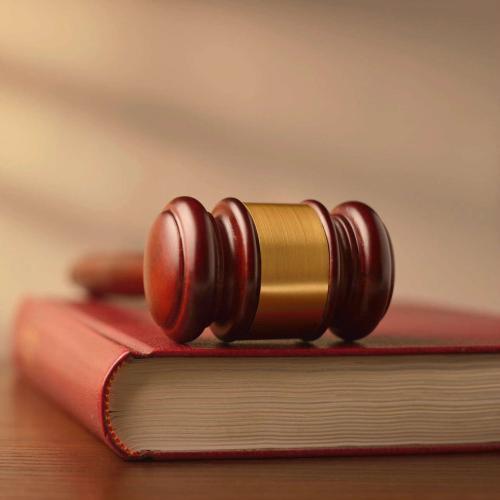The scope of obligations imposed on prosecutors to disclose evidence favorable to the defense is a pivotal aspect of the United States criminal justice system. These obligations ensure that all pertinent information is made available to the defense, fostering a fair trial process. The breadth of these duties, encompassing the identification, preservation, and disclosure of various types of evidence, reflects the fundamental principles of justice and transparency.
Understanding Brady Obligations
Brady obligations require that prosecutors disclose evidence that is favorable to the accused and material to guilt or punishment. This encompasses evidence that is exculpatory or impeaching. Exculpatory evidence can exonerate the defendant, while impeaching evidence undermines the credibility of prosecution witnesses. The scope of these obligations is broad and multifaceted, extending beyond mere possession to include evidence held by others acting on the prosecution's behalf.
Identifying Brady Material
The identification of Brady material is an essential first step. Prosecutors must thoroughly review all evidence to determine its potential impact on the case. This involves not only assessing direct evidence but also considering the broader context in which the evidence exists. For example, a witness statement that contradicts the prosecution's case or forensic evidence that supports the defendant's alibi must be identified as Brady material.
The obligation to identify Brady material extends to evidence possessed by law enforcement and other agencies involved in the investigation. Prosecutors must actively seek out and review evidence from these sources to ensure comprehensive disclosure. This duty underscores the interconnected nature of the criminal justice system, where various entities must collaborate to uphold justice.
Preservation of Evidence
Preservation of evidence is another critical component of Brady obligations. Once identified, Brady material must be preserved and protected from loss or destruction. This includes implementing proper evidence handling and storage protocols to maintain the integrity of the evidence. Prosecutors must ensure that all relevant evidence, including digital and physical evidence, is safeguarded.
The failure to preserve evidence can result in severe consequences, including the dismissal of charges or reversal of convictions. Courts have consistently emphasized the importance of evidence preservation in maintaining the fairness of the trial process. As such, prosecutors and law enforcement agencies must adopt robust evidence management practices to fulfill their Brady obligations.
Timely Disclosure
Timely disclosure of Brady material is paramount to ensuring a fair trial. Prosecutors must disclose exculpatory and impeaching evidence as soon as it is identified, providing the defense with adequate time to investigate and incorporate the evidence into their case strategy. Delayed disclosure can hinder the defense's ability to effectively use the evidence, thereby compromising the fairness of the trial.
The timing of disclosure is particularly crucial in the pre-trial phase, where defense attorneys must prepare their case and develop a defense strategy. Courts have ruled that Brady obligations extend throughout the pre-trial and trial phases, requiring continuous review and disclosure of newly discovered evidence. This ongoing duty ensures that the defense is not blindsided by late disclosures that could undermine their case.
Challenges in Fulfilling Brady Obligations
Despite the clear mandate for disclosure, prosecutors face several challenges in fulfilling Brady obligations. One significant challenge is the sheer volume of evidence that must be reviewed and assessed for potential Brady material. High-profile cases, in particular, often involve extensive evidence that requires meticulous review and evaluation.
Additionally, the subjective nature of determining what constitutes exculpatory or impeaching evidence can lead to inconsistencies in disclosure practices. Prosecutors must exercise judgment in assessing the relevance and impact of evidence, which can sometimes result in unintentional nondisclosure. Training and guidance can help mitigate these challenges, ensuring that prosecutors are well-equipped to identify and disclose Brady material.
Prosecutorial Misconduct
Instances of prosecutorial misconduct, where evidence is deliberately withheld, represent a serious breach of Brady obligations. Such actions undermine the integrity of the judicial process and erode public trust in the criminal justice system. Prosecutorial misconduct can lead to wrongful convictions, depriving innocent individuals of their liberty and allowing the true perpetrators to evade justice.
Addressing prosecutorial misconduct requires robust oversight and accountability mechanisms. Independent review boards, disciplinary actions, and judicial sanctions can help deter and address instances of misconduct. Ensuring that prosecutors adhere to ethical standards and Brady obligations is essential in maintaining the credibility and fairness of the criminal justice system.
Defense Strategies and Brady Obligations
Defense attorneys play a crucial role in ensuring that Brady obligations are fulfilled. By actively seeking out exculpatory and impeaching evidence, defense attorneys can hold prosecutors accountable for their disclosure duties. Filing motions for discovery and requesting specific evidence are common strategies used by defense attorneys to obtain Brady material.
Effective defense strategies also involve thorough investigation and review of all disclosed evidence. Defense attorneys must scrutinize the prosecution's evidence to identify any potential Brady material that may have been overlooked or improperly disclosed. This proactive approach is essential in safeguarding the defendant's right to a fair trial.
Judicial Oversight and Enforcement
Judicial oversight is a critical component in enforcing Brady obligations. Judges play an active role in ensuring that prosecutors comply with their disclosure duties. This includes reviewing motions for discovery, assessing the sufficiency of disclosed evidence, and imposing sanctions for noncompliance.
Courts have developed various remedies to address Brady violations, including the exclusion of evidence, granting continuances, and, in severe cases, reversing convictions. These remedies aim to restore the fairness of the trial process and provide relief to defendants whose rights have been violated. Judicial oversight and enforcement are thus integral to upholding the principles of justice and due process.
Reform Initiatives
Recognizing the importance of Brady obligations, various reform initiatives have been proposed and implemented to enhance compliance and accountability. Training programs for prosecutors and law enforcement officers focus on improving the identification, preservation, and disclosure of Brady material. These programs emphasize the ethical and legal responsibilities associated with Brady obligations.
Some jurisdictions have adopted open file policies, allowing the defense access to the prosecution's entire case file. This approach reduces the risk of inadvertent nondisclosure and promotes transparency in the trial process. Open file policies have been praised for their effectiveness in ensuring comprehensive disclosure and fostering a more equitable legal system.
Technological Advancements
Technological advancements offer promising solutions for enhancing compliance with Brady obligations. Digital evidence management systems enable better tracking and organization of evidence, facilitating timely and accurate disclosure. These systems can alert prosecutors to potential Brady material and ensure that evidence is preserved and accessible.
Additionally, the use of data analytics and artificial intelligence can assist in identifying exculpatory and impeaching evidence. These technologies can analyze large volumes of data to uncover patterns and relationships that may not be immediately apparent. By leveraging technological tools, prosecutors can improve their ability to fulfill Brady obligations and uphold the principles of justice.
Legislative Measures
Legislative measures have also been introduced to strengthen Brady obligations. Some states have enacted laws mandating automatic and reciprocal discovery, requiring both the prosecution and defense to disclose their evidence without specific requests. These measures aim to create a more transparent and balanced process, ensuring that all relevant evidence is available to both parties.
Legislative reforms also include provisions for enhanced penalties for Brady violations. These penalties serve as a deterrent against noncompliance and underscore the importance of disclosure obligations. By codifying Brady obligations into law, legislatures can provide clearer guidelines and stronger enforcement mechanisms to support a fair trial process.
The scope of Brady obligations is vast and critical to the integrity of the criminal justice system. These obligations ensure that defendants have access to all evidence that could impact their case, promoting a fair and just trial process. While challenges and instances of misconduct exist, ongoing reforms, technological advancements, and judicial oversight hold promise for improving compliance and accountability.
As the legal landscape continues to evolve, it is imperative for all stakeholders—prosecutors, defense attorneys, law enforcement, and policymakers—to remain vigilant and committed to upholding Brady obligations. By fostering a culture of transparency, accountability, and ethical conduct, the criminal justice system can better serve the principles of justice and due process.



